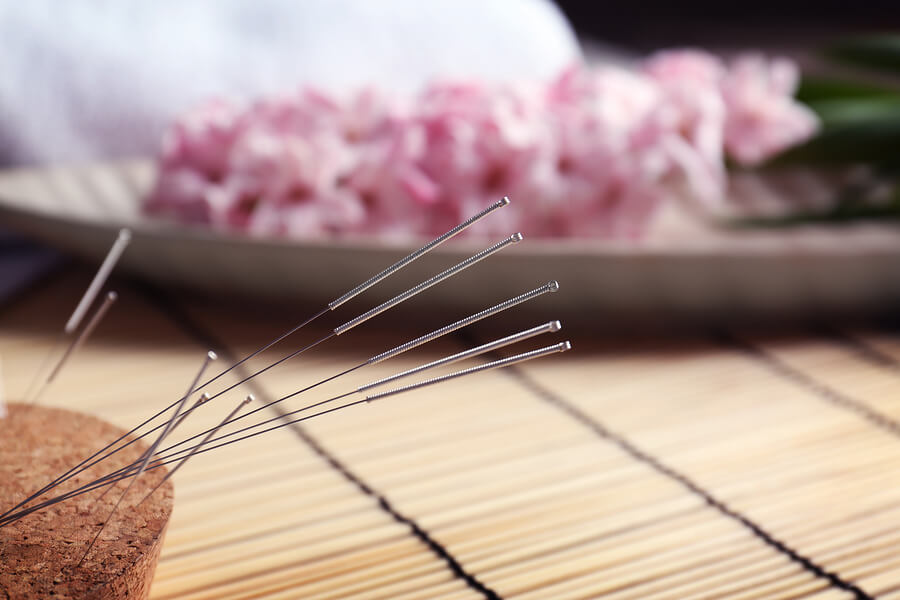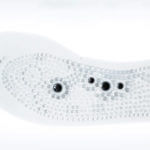Table of Contents
How Acupuncture can help Relieve Menopausal Symptoms
Menopause is a natural biological process that marks the end of a woman's reproductive years. While it is a normal transition, it can bring about a range of uncomfortable symptoms that can disrupt a woman's quality of life. Hot flashes, night sweats, mood swings, insomnia, and vaginal dryness are just a few examples of the challenges women may face during this phase. While there are various treatment options available, one alternative therapy that has gained significant attention is acupuncture. In this blog post, we will explore how acupuncture can help relieve menopausal symptoms and provide you with a comprehensive understanding of its effectiveness and benefits.
Understanding Menopause
Menopause is a significant phase in a woman's life that marks the end of her reproductive years. It is essential to have a comprehensive understanding of menopause before exploring the potential benefits of acupuncture for relieving its symptoms. Menopause is a natural biological process that occurs as a result of the gradual decline in ovarian function. This leads to a decrease in the production of two key hormones, estrogen, and progesterone.
The hormonal changes during menopause can bring about a wide range of physical and emotional symptoms, which can vary in intensity and duration for each woman. Some of the commonly experienced symptoms include:
Hot Flashes and Night Sweats
Hot flashes are sudden sensations of heat, often accompanied by redness and sweating. They can occur during the day or night, leading to disrupted sleep and discomfort. Night sweats refer to episodes of excessive sweating during sleep, often causing dampness and discomfort.
Mood Swings and Emotional Changes
Fluctuations in hormone levels can contribute to mood swings, irritability, anxiety, and feelings of sadness or depression. Emotional changes during menopause can vary in intensity and may affect a woman's overall well-being and quality of life.
Sleep disturbances
Many women experience difficulties falling asleep or staying asleep, leading to insomnia or poor sleep quality. Sleep disturbances can further exacerbate other menopausal symptoms and impact daily functioning.
Vaginal and Sexual Changes
Decreased estrogen levels can cause vaginal dryness, itching, and discomfort during sexual intercourse.
Changes in hormone levels can also affect libido and sexual desire, leading to challenges in intimacy and sexual satisfaction.
Changes in Bone Health
Estrogen plays a vital role in maintaining bone density. During menopause, the decline in estrogen levels increases the risk of osteoporosis and bone fractures.
Cognitive Changes
Some women may experience difficulties with memory, concentration, and cognitive function during menopause. These changes are often referred to as “brain fog.”

What is Acupuncture?
Acupuncture, a time-honored practice originating from Chinese medicine, is a therapeutic approach that involves the precise insertion of ultra-thin needles into specific points on the body. These points, known as acupuncture points or acupoints, are believed to be interconnected pathways that form a complex network, influencing the flow of energy within the body. This vital energy is referred to as Qi (pronounced “chee”).
The philosophy behind acupuncture revolves around the concept of Qi, which is believed to flow through meridians or channels that traverse the body. According to traditional Chinese medicine, the balanced and harmonious flow of Qi is crucial for maintaining optimal health and well-being. Disruptions or imbalances in the flow of Qi are thought to contribute to various health conditions, including the symptoms experienced during menopause.
Acupuncture and Menopausal Symptoms
Acupuncture, an ancient Chinese practice, is gaining recognition as an effective complementary therapy for managing a range of menopausal symptoms. Extensive research has shed light on how acupuncture specifically addresses and alleviates common symptoms experienced during menopause. Let's delve into the details of how acupuncture can help with each symptom:
Hot Flashes and Night Sweats
Acupuncture is thought to regulate the hypothalamus, the part of the brain responsible for temperature regulation. By stimulating specific acupuncture points, the therapy helps reduce the frequency and intensity of hot flashes and night sweats. A study published in the journal Menopause showcased significant reductions in the occurrence and severity of hot flashes among menopausal women who received acupuncture treatment.
Mood Swings and Anxiety
Acupuncture plays a role in regulating neurotransmitters in the brain, such as serotonin and endorphins, which are crucial for mood regulation. By promoting a balanced flow of these neurotransmitters, acupuncture can effectively alleviate symptoms of depression and anxiety in menopausal women. Research published in Obstetrics & Gynecology has substantiated the positive impact of acupuncture in reducing mood swings and anxiety during menopause.
Insomnia
Acupuncture has been found to improve sleep quality by inducing relaxation and reducing stress levels. By targeting specific acupuncture points, the therapy helps the body achieve a state of calmness, leading to better sleep. A study published in Sleep demonstrated that acupuncture significantly improved both the duration and efficiency of sleep among postmenopausal women suffering from insomnia.
Vaginal Dryness and Sexual Dysfunction
Acupuncture can enhance blood flow to the pelvic region, including the vaginal area. This increased blood circulation promotes vaginal lubrication, reducing discomfort and addressing vaginal dryness commonly experienced during menopause. A systematic review and meta-analysis published in the Journal of Alternative and Complementary Medicine highlighted the positive effects of acupuncture on sexual function in menopausal women, improving their overall sexual health.
Fatigue and Low Energy
Menopausal fatigue and low energy levels can significantly impact a woman's daily life. Acupuncture helps stimulate the body's energy pathways, promoting a balanced flow of energy and enhancing vitality. Targeting specific acupuncture points, it can improve overall energy levels and combat fatigue.
Cognitive Changes and Memory Issues
Menopause can bring about cognitive changes, such as difficulty concentrating and memory issues. Acupuncture has been found to enhance cognitive function by increasing blood flow to the brain and improving neurotransmitter balance. This can help alleviate cognitive symptoms and support mental clarity during menopause.
Joint Pain and Muscle Aches
Many women experience joint pain and muscle aches during menopause, which can be attributed to hormonal fluctuations and inflammation. Acupuncture has been shown to reduce inflammation and relieve pain by releasing endorphins and other natural pain-relieving substances. It can also promote better joint mobility and flexibility.
Weight Gain and Metabolic Changes
Menopausal weight gain and metabolic changes can be challenging to manage. Acupuncture can help regulate metabolism by stimulating the thyroid gland and promoting better hormonal balance. Additionally, it can support weight management by reducing cravings, improving digestion, and enhancing overall well-being.
Urinary Symptoms
Menopause can lead to urinary symptoms like frequent urination, urgency, or urinary incontinence. Acupuncture can strengthen the pelvic floor muscles and improve bladder control. It also helps regulate the nervous system's response to bladder function, reducing urinary symptoms and enhancing urinary health.
Emotional Well-being
Menopause can bring about emotional changes, including irritability, mood swings, and feelings of anxiety or depression. Acupuncture can help balance neurotransmitters in the brain, such as serotonin and dopamine, which play crucial roles in emotional well-being. By promoting a state of relaxation and calmness, acupuncture can alleviate emotional symptoms and improve overall mental health.
The Science Behind Acupuncture
The scientific understanding of acupuncture's mechanisms is an ongoing area of research, with multiple theories proposed to explain its effectiveness in addressing menopausal symptoms. Here, we delve deeper into the science behind acupuncture and its potential mechanisms of action:
Endorphin Release
One widely accepted theory suggests that acupuncture stimulates the release of endorphins in the body. Endorphins are natural pain-relieving and mood-enhancing chemicals that promote a sense of well-being. By inserting thin needles into specific acupuncture points, this process triggers the body's natural response to release endorphins, helping to alleviate menopausal symptoms such as hot flashes, mood swings, and pain.
Neurotransmitter Regulation
Acupuncture has been found to influence various neurotransmitters in the brain, including serotonin, dopamine, and gamma-aminobutyric acid (GABA). Serotonin is involved in mood regulation, while dopamine affects pleasure and reward. GABA acts as an inhibitory neurotransmitter, promoting relaxation and reducing anxiety. By modulating the release and balance of these neurotransmitters, acupuncture can help regulate mood, reduce anxiety and depression, and enhance overall emotional well-being during menopause.
Hormonal Balance
Menopause is characterized by significant hormonal fluctuations, particularly a decline in estrogen and progesterone levels. Acupuncture has been observed to influence hormone secretion and regulation. Research suggests that acupuncture can stimulate the hypothalamus-pituitary-adrenal (HPA) axis, which plays a crucial role in hormone production and regulation. By promoting the balance of hormones, acupuncture may help alleviate menopausal symptoms related to hormonal changes, such as hot flashes, night sweats, and mood swings.
Blood Flow and Circulation
Acupuncture promotes improved blood flow and circulation throughout the body. This enhanced circulation supports the delivery of oxygen, nutrients, and immune cells to different tissues and organs. By increasing blood flow, acupuncture helps nourish the body's tissues, reduce inflammation, and support the overall functioning of the body systems affected by menopausal symptoms.
Neuroplasticity and Nerve Stimulation
Acupuncture stimulates sensory nerves and triggers a series of neurophysiological responses. These responses include the release of neuropeptides, activation of specific brain regions, and modulation of neural pathways. Through these mechanisms, acupuncture can influence the brain's neuroplasticity, promoting adaptive changes in neuronal connections and optimizing the body's response to menopausal symptoms.
Modulation of the Autonomic Nervous System
Acupuncture has been shown to influence the autonomic nervous system (ANS), which regulates various involuntary bodily functions. By stimulating specific acupuncture points, acupuncture can help rebalance the sympathetic and parasympathetic branches of the ANS. This rebalancing effect can reduce stress, promote relaxation, and alleviate symptoms such as hot flashes, sleep disturbances, and mood swings.
Anti-Inflammatory Effects
Menopausal symptoms, such as joint pain and muscle aches, can be associated with inflammation. Acupuncture has been found to exert anti-inflammatory effects by suppressing pro-inflammatory cytokines and promoting the release of anti-inflammatory substances. This modulation of the inflammatory response can help alleviate pain and discomfort associated with menopause.
Regulation of Hypothalamic-Pituitary-Ovarian Axis
The hypothalamic-pituitary-ovarian (HPO) axis plays a crucial role in the regulation of reproductive hormones. Acupuncture has been shown to influence the HPO axis, leading to a normalization of hormonal levels. By restoring balance to this axis, acupuncture may help alleviate menopausal symptoms related to hormonal imbalances, such as irregular periods, mood swings, and decreased libido.
Additional Benefits of Acupuncture
In addition to providing relief for menopausal symptoms, acupuncture offers a range of additional benefits that contribute to overall well-being. Let's explore these advantages in greater detail:
Minimal Side Effects
Acupuncture is known for its safety profile, particularly when administered by a licensed and experienced practitioner. Compared to hormonal therapies or medications, acupuncture carries minimal risks and side effects. This makes it a favorable option for women seeking natural alternatives with fewer potential adverse effects.
Holistic Approach
Acupuncture takes a holistic approach to healthcare. Rather than focusing solely on menopausal symptoms, it addresses the body as a whole, considering the interconnectedness of various systems. By examining the underlying imbalances contributing to symptoms, acupuncture promotes comprehensive well-being and aims to restore harmony within the body.
Individualized Treatment
Every woman's experience of menopause is unique, and acupuncture recognizes this individuality. Each acupuncture treatment is tailored to the specific needs, symptoms, and overall health of the individual. By customizing the treatment approach, acupuncture maximizes its effectiveness in addressing menopausal symptoms and ensures a personalized experience.
Stress Reduction and Relaxation
Acupuncture sessions provide an opportunity for relaxation and stress reduction. The therapy promotes the release of endorphins, which are natural pain-relieving and mood-enhancing substances. This not only helps alleviate menopausal symptoms but also contributes to an overall sense of well-being and relaxation.
Improved Energy and Vitality
Many women experience a decline in energy levels during menopause. Acupuncture stimulates the body's energy pathways, promoting a balanced flow of energy and enhancing vitality. By targeting specific acupuncture points, the therapy can help boost energy levels, reduce fatigue, and enhance overall vitality and stamina.
Enhanced Immune Function
Acupuncture has been found to have a positive impact on immune function. By stimulating specific points, it can strengthen the immune system, improving the body's ability to fight off infections and maintain optimal health during the menopausal transition.
Emotional Support
Menopause can bring about emotional challenges, including mood swings, irritability, and anxiety. Acupuncture not only addresses the physical symptoms but also provides emotional support. By promoting a state of relaxation and balance, acupuncture can help alleviate emotional distress, improve mood, and enhance overall emotional well-being.
Finding a Qualified Acupuncturist
To ensure the best possible outcomes and safety during acupuncture treatment for menopausal symptoms, it is crucial to find a qualified and licensed acupuncturist. Consider the following tips:
Research Credentials
Thoroughly research acupuncturists in your area and check their credentials. Look for practitioners who are licensed and certified by recognized governing bodies or professional associations in your country or region. This ensures that they have met the necessary educational and training requirements to practice acupuncture safely and effectively.
Seek Referrals
Seek recommendations from trusted sources such as friends, family, or healthcare professionals who have experience with acupuncture or other alternative therapies. Their personal experiences can provide valuable insights and help you find reputable acupuncturists in your area.
Conduct Interviews
Schedule consultations or interviews with potential acupuncturists. During these sessions, discuss your specific menopausal symptoms, treatment goals, and concerns. Assess their experience and expertise in treating menopausal symptoms. Pay attention to their approach, communication style, and how comfortable you feel discussing your health issues with them.
Check Reviews and Testimonials
Read online reviews and testimonials about the acupuncturists you are considering. Websites, social media platforms, and healthcare directories often provide patient feedback and ratings. This feedback can give you a sense of the acupuncturist's reputation, professionalism, and the experiences of previous patients.
Trust Your Instincts
Trust your intuition when making a decision. Choose an acupuncturist whom you feel comfortable with, who listens attentively, and communicates clearly. A good acupuncturist should be empathetic, understanding, and dedicated to helping you manage your menopausal symptoms effectively.
Integrating Acupuncture with Other Therapies
Acupuncture can be used as a standalone therapy or in combination with other treatments to manage menopausal symptoms effectively. Here are some considerations for integrating acupuncture with other therapies:
Consult with Healthcare Providers
It is important to inform your primary healthcare provider or gynecologist about your decision to explore acupuncture as part of your menopausal symptom management. They can provide valuable guidance, ensure coordination of care, and monitor your progress throughout the treatment process. This collaboration ensures that all aspects of your health are considered and optimized.
Combination Therapies
Discuss the possibility of combining acupuncture with other evidence-based therapies. For example, hormone replacement therapy (HRT) is a common treatment for menopausal symptoms. Your acupuncturist and healthcare provider can work together to determine if combining acupuncture with HRT or other therapies such as herbal remedies or lifestyle modifications would be beneficial in addressing your specific symptoms.
Regular Communication
Maintain open and ongoing communication between your healthcare providers and acupuncturist. Share updates on your progress, any changes in symptoms, or adjustments in other therapies you may be undergoing. This ensures that everyone involved is aware of your treatment plan and can make informed decisions regarding your care. Regular communication facilitates a cohesive approach and optimizes the effectiveness of your treatment.
Individualized Approach
Recognize that each woman's experience of menopause is unique, and therefore, an individualized treatment approach is essential. Your acupuncturist will consider your specific symptoms, overall health, and any other therapies you are receiving. By tailoring the acupuncture treatment to your needs, they can enhance its effectiveness in addressing your menopausal symptoms and promoting your well-being.
Conclusion
Acupuncture is a promising alternative therapy for managing menopausal symptoms. Its ability to address various symptoms, such as hot flashes, mood swings, insomnia, and vaginal dryness, makes it an appealing option for women seeking natural relief during the menopausal transition. While acupuncture may not be a cure-all, the growing body of evidence suggests that it can provide significant relief and improve the quality of life for menopausal women.
Sources
- https://www.bmj.com/company/newsroom/acupuncture-may-ease-troublesome-menopausal-symptoms/
- https://www.menopausecentre.com.au/information-centre/articles/acupuncture-reducing-menopausal-symptoms/
- https://www.ncbi.nlm.nih.gov/pmc/articles/PMC4874921/
- https://www.evidencebasedacupuncture.org/acupuncture-menopause/




Comments
Loading…